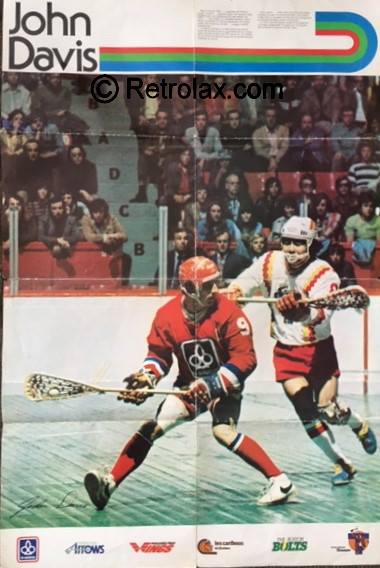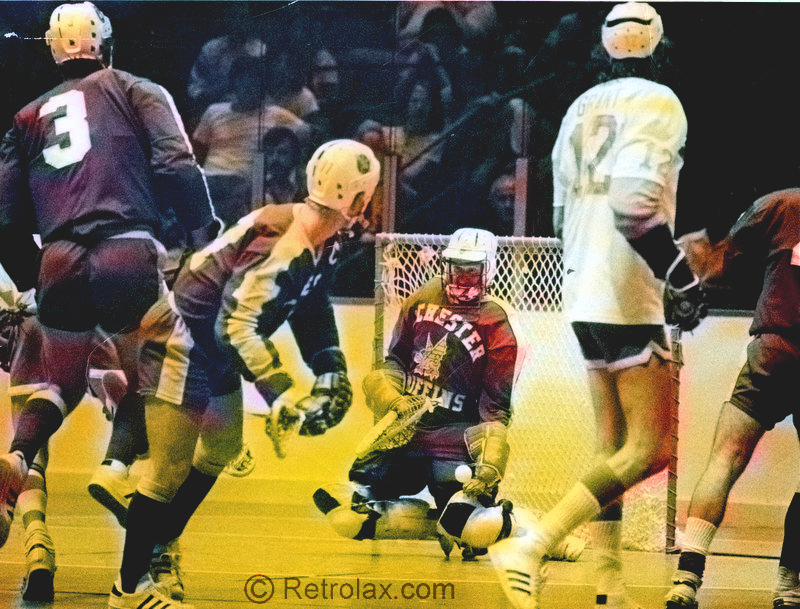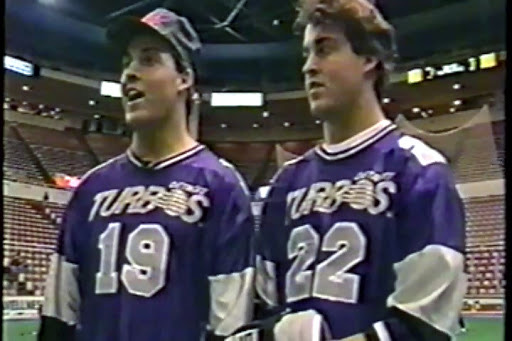With the Caribous on hand, the NLL finals became an all-Quebec affair
by J.D.Reed for Sports Illustrated
Quebec is a city that seems to specialize in the unexpected. On the radio a Charles Aznavour-style singer imitates the Big Bopper doing the ’50s hit Chantilly Lace. His rendition is complete with U.S. snorts and groans, but he sings it in a French most Parisians could not understand. Out in the suburbs U.S.-style shopping centers are selling English shoes and French soap, and in the Old City, with its fort and other remnants of the 18th century, teens roam in the latest rive gauche fashions. But the most surprising thing of all last week in Quebec happened at the Colisee, best known as the home of the WHA’s Nordiques. There, two games of the National Lacrosse League’s best-of-seven Nations Trophy finals were played. That the local Caribous were involved in the NLL’s championship series was absolutely unexpected. And they not only were fighting the Montreal Quebecois for the title, but, even more surprisingly, they were getting the better of the battle, at least for the moment.
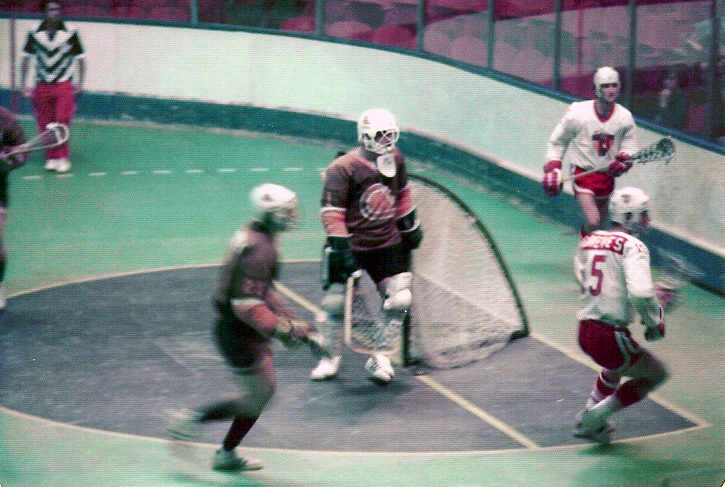
Pro lacrosse is so rough that the Dirty Dozen would have been a more likely candidate for the finals than the Caribous. Quebec had spent more than half of the NLL season being pushed around by the league’s five other teams. As late as Aug. 25 the Caribous were in last place; then a dramatic drive (they won six of their last eight games) qualified them for the fourth and final spot in the playoffs. That achievement was followed by a startling victory in the first round over the defending champion Long Island Tomahawks. Quebec knocked off the Tomahawks in six games, rather easily taking its four victories by scores of 10-8, 14-9, 15-11 and 18-12.
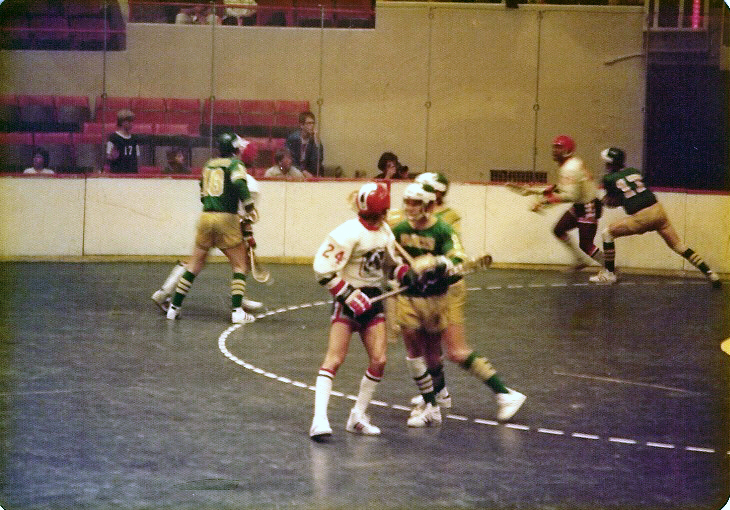
Meanwhile, Montreal, one of the NLL’s front-runners throughout the season, was defeating the Boston Bolts in the other first-round pairing to make the finals an intra-province affair. But in the tightly balanced NLL, not even classy Montreal could ease into the title round. It had to rally from a 3-1 deficit against the Bolts to make it.

Despite all these theatrical preliminaries, the thing that surprised the equipe de crosse fans in the Quebec bistros was the status of the Nations Trophy series when it arrived in their city. Brilliant play by Travis Cook, who scored eight points in the opening two games in Montreal, and Goalie Larry Smeltzer, who made 81 saves, and Coach Medo Martinello’s modified zone defense had thrust Quebec into another unexpected position—a 2-0 lead.
For the members of the SRO crowd of 10,781 that gathered at the Colisee for the third game, any lead, any time over Montreal is worth savoring. The two cities have been rivals for generations; the sophisticated, Continental aura of Montreal and the chain-saw, Lucky Pierre image of Quebec go together like ’52 Lafite Rothschild and a Big Mac.
And the two teams reflect their cities’ images: Montreal is a well-drilled, fast-breaking club, light on violence and strong on controlled power plays. The Caribous are rough, individual and ever ready to drop their gloves. Even Quebec’s rink fits its team. The Colisee is battered and dim, the walls scarred by objects thrown by emotional fans.
An hour before the opening face-off of Game 3, a Montreal reporter appeared with a bandaged forehead that was wounded while he was trying to enter the arena through enemy lines. By the time the game was over, he would not be the only visitor who felt worse for wear. Despite a three-goal performance by Montreal’s star Forward John Davis, the Caribous won 10-8. And again it was Smeltzer, with 34 saves, and Cook, with four goals and a pair of assists, who led the way.

“I think we can take them, but it won’t be easy,” said Quebec’s hero of the finals, Goalie Smeltzer, showing considerable proficiency at stock answers, despite the infrequency of his contacts with the press. As a leading contender for the MVP award in the Nations Trophy series, Smeltzer was a sudden celebrity. That indeed is a rare circumstance in a league where player salaries average $11,000 and the dress code runs to Levi’s and Earth shoes.
After receiving a standing ovation before the third game, Smeltzer plainly had been awed. “Gosh, I come from Fergus, Ontario, population 5,000,” he said. “There were more people sitting behind the goal than in my hometown.” During the off-season, Smeltzer stays in shape by working in the family business, barn building, but when he discusses goaltending it is clear he is no farm boy. “Lacrosse goalies are a combination of a lot of things,” he says. “You’ve got to have the reflexes of a racing driver and the skill of a hockey goalie. Sometimes you’ve got to be like a football quarterback implementing plays, and other times you’ve got to be like a linebacker ending them.”
Smeltzer’s teammate Cook, a 6’3″, 200-pound Mohawk Indian from the St. Regis reservation, Cornwall, Ontario is more sophisticated about fame, perhaps because he is a college man. He says, “I want a career in lacrosse. I’m a geography major at Oswego State in New York, and there aren’t many jobs available for geographers. If we beat Montreal, that oughtta do it for me.”
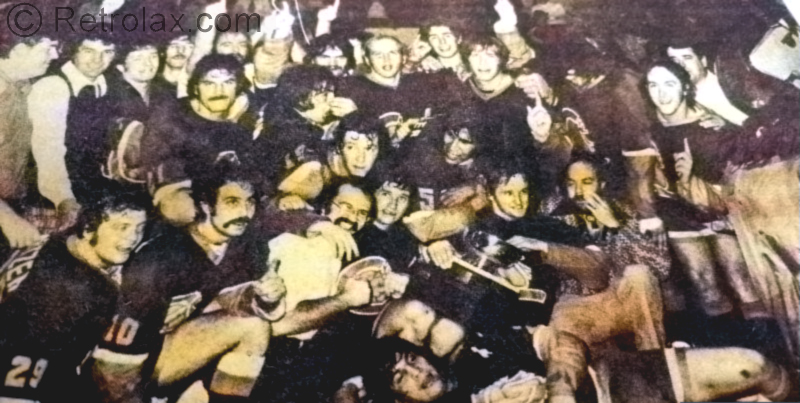
While the Caribous idled through their workout and chatted with onlookers alongside the playing surface, a lone figure in a hat and overcoat sat up in the dark Colisee and watched. He was Montreal Coach Jim Bishop.
That night another sell-out crowd discovered that Bishop’s spectating had been profitable. He had his tightly controlled offense press deeper against Quebec’s zone defense, pushing the Caribous behind their penalty-shot line. Davis, the Henry Aaron of lacrosse at 31, contributed four more points and Montreal won 13-8.
After the loss the fans vehemently announced certain suspicions to NLL Commissioner Gerry Patterson, who was sitting among them. “This is a fix!” yelled one enraged man. “You just want the revenue from Game 5!” Patterson wiped his forehead and slipped away, carrying the silver Nations Trophy in a cardboard box back to his car. “You know, we had a hall and a band hired,” lamented Caribou Owner Barre. “Now I don’t know what to do.”
What there was to do was pack up and catch the bus to Montreal for Game 5 two nights later. At 5:30 that afternoon Smeltzer was playing a pinball machine in a diner near the Forum. “I don’t like to get to the dressing room too early,” he said. By 10:30 he wished he had not been there at all. Montreal put together a near replay of Game 4. Light, agile, its power play working well, it swept the angry, fistfighting Caribous off the boards in a 12-8 victory.
n spite of Montreal’s two fine efforts, the Caribous still had a 3-2 lead going into this week’s final pair of games. And Montreal fans were aware that even with their team’s game back in form, another come-from-behind series win seemed unlikely. As Commissioner Patterson once more lugged the Nations Trophy out to his car, Montreal Owner Nelson Stoll stared wistfully after it. “I know we have the better team,” he said. “Quebec is playing over its head. But that doesn’t mean a thing in lacrosse. It doesn’t mean we’ll win.” Especially not when you consider how Quebec has been thriving on the unexpected lately.


